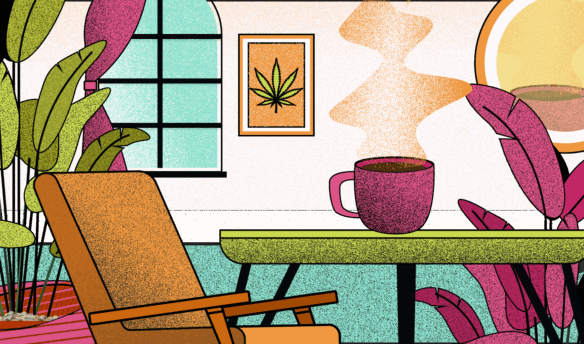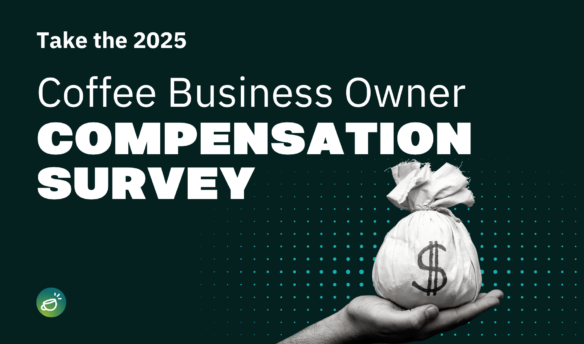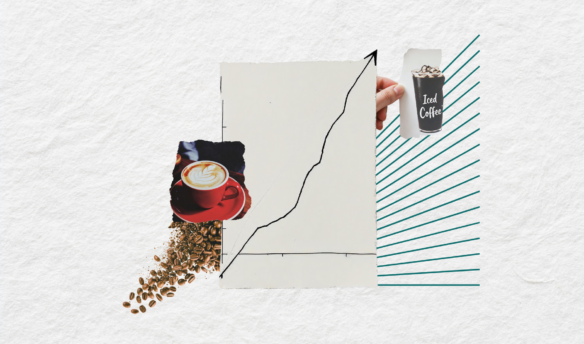Welcome to Behind the Headlines. In our new series, Fresh Cup will delve deeper into the coffee industry’s news items and trending topics, and offer additional insights and reporting to contextualize the headlines.
Recently, the National Coffee Association released a new report with a noteworthy finding: 81% of respondents said they’re still consuming coffee at home, even as out-of-home coffee consumption has returned to pre-pandemic levels.
To give this story more context, Sprudge paired the NCA’s numbers with a report from the e-commerce accelerator Pattern, which found that whole-bean coffee sales on Amazon increased by 46% year-over-year from Q3 2023 to Q3 2024. Together, these findings suggest that coffee consumers are increasingly concerned with freshness and quality, and are choosing to grind their own beans when preparing coffee at home.
All of that amounts to a significant shift in customer behavior—but we wanted to know if roasters were also observing the same trends that the data suggest.
For many, the answer is yes. The California-based Klatch Coffee has seen whole-bean sales rise since 2020, which CEO Heather Perry attributes to the pandemic. “Perhaps consumers gained increased leisure time or an increased passion for specialty coffee during work-from-home, and then stuck with their new preferences for whole-bean coffee once the pandemic changes were over,” she says.
Our sales at Klatch Coffee are overwhelmingly in the whole-bean category, with only a small portion of orders selecting ground coffee.
Our sales at Klatch Coffee are overwhelmingly in the whole-bean category, with only a small portion of orders selecting ground coffee. Heather Perry, Klatch Coffee
For both one-off and subscription purchases, Klatch offers grind options ranging from fine to extra coarse, depending on how customers plan to enjoy their beans. Despite the options, shoppers are still increasingly opting for whole-bean coffee.
“Our sales at Klatch Coffee are overwhelmingly in the whole-bean category, with only a small portion of orders selecting ground coffee,” says Perry. “We want our customers to enjoy the best possible cup, bursting with flavor and aroma, and to get the absolute best results, we always recommend that coffee drinkers purchase whole beans and grind them immediately before brewing.”
Methodical Coffee in Greenville, South Carolina, has also seen steady year-over-year growth in whole-bean coffee sales—around a 20% increase, according to CEO and co-owner Marco Suarez.
Suarez believes that this growth has to do with the kind of people seeking out specialty beans.“Coffee drinkers who are willing to spend money on premium coffee typically have invested in good coffee equipment, like grinders,” he says.
For the most part, Suarez says the customers asking for their beans ground aren’t usually taking them home. “In store, we occasionally get asked to grind a bag that someone buys, but that’s typically because someone is traveling and may have limited access to good equipment—or they’re buying it for a gift and don’t know if the recipient has access to a grinder,” he says. “But overall, our customer base desires freshness in roast date as well as freshness in grinding. They want to ensure they’re experiencing their coffee in its fullest.”
The specialty coffee market continues to expand as people learn more about coffee quality and processing methods. This awareness has boosted whole-bean sales, as more people understand the connection between bean quality and cup quality. Dr. Christina Rahm, Rahm Roast
Rahm Roast, an online brand focused on lower-acidity coffees, exclusively sells whole-bean coffee in order to best preserve its complex flavor and aroma.
“We’ve seen a significant increase in whole-bean coffee sales, especially through e-commerce,” says Dr. Christina Rahm, the company’s founder. “This growth shows a clear shift toward higher-quality, healthier coffee options.”
Rahm believes that this trend shows no sign of slowing down, and that more people will turn to whole-bean options in future. “The specialty coffee market continues to expand as people learn more about coffee quality and processing methods,” she says. “This awareness has boosted whole-bean sales, as more people understand the connection between bean quality and cup quality.”







